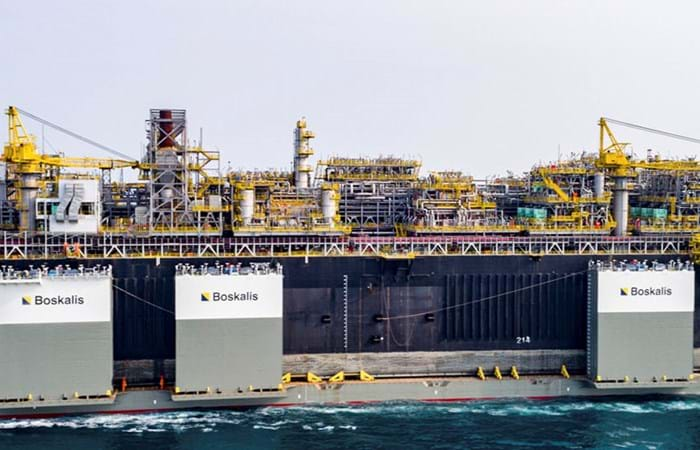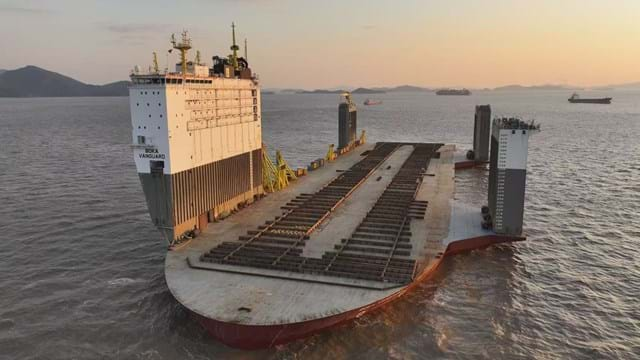On behalf of Company Petrobras and Client COOEC, Boskalis executed the dry transportation of the P-67 FPSO in 2018 from the COOEC Qingdao yard in China to Rio de Janeiro in Brazil. The P-67 FPSO will produce 150,000 bpd and compress six million cubic meters of natural gas daily in the Lula North section of the Lula-Cernambi field in the Santos basin.
The transportation of the 90,000-tonne box-shaped P-67 unit around the Cape of Good Hope poses various challenges to Petrobras which incentivized the dry-tow opera-tion method in order to ensure a seamless and safe delivery of the unit at loca-tion. The operation was executed with the Boskalis semi-submersible heavy lift vessel, Boka Vanguard and is the heaviest cargo ever to be transported by this method.

